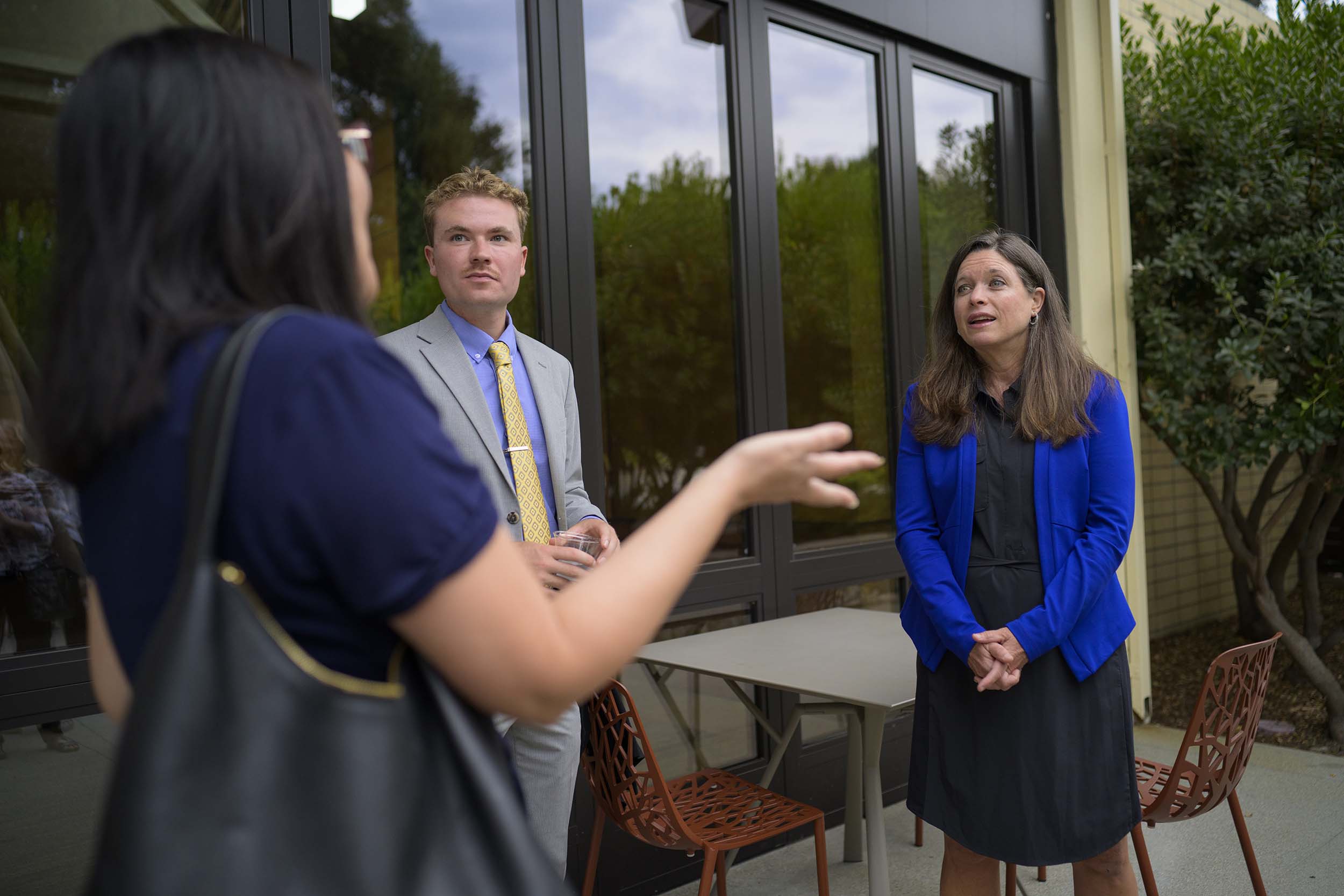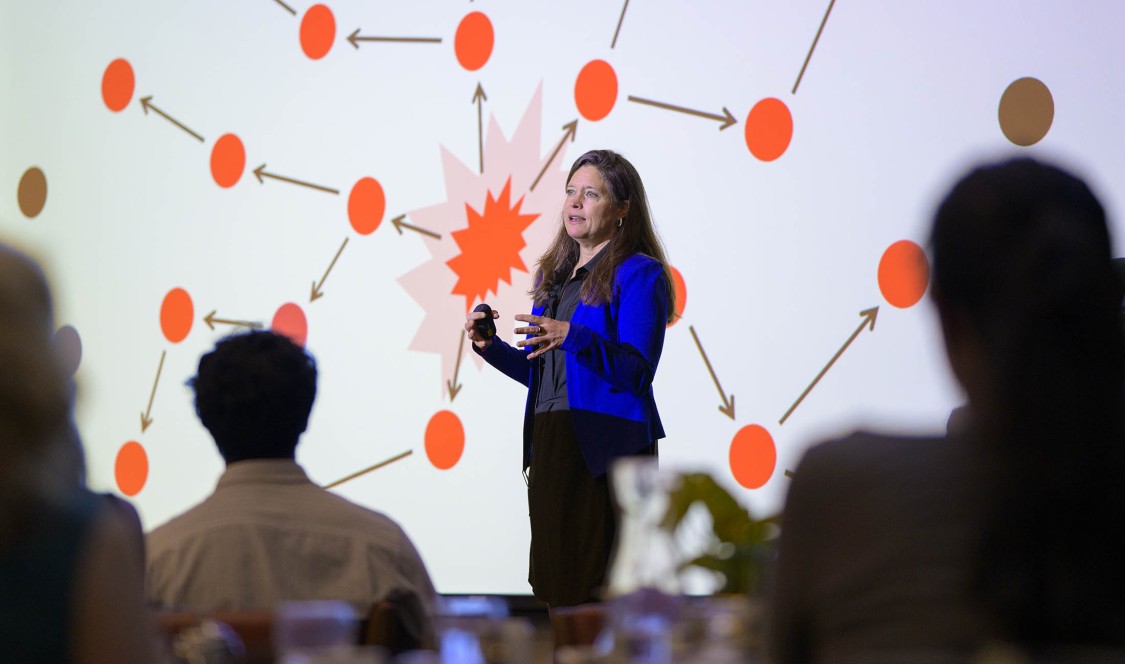Christine Porath’s origin point for studying the consequences of incivility was observing her father suffering in a hospital bed, electrodes on his chest.
“What put him there was working not for one but two really toxic bosses over a long period of time,” recalled Porath during her Sept. 17 Athenaeum talk, “Mastering Civility: A Manifesto for Life.” “I knew that work was bad, and I knew that his bosses were pretty powerful, but I didn’t know the particulars until I was working on my book.”
The book, Mastering Civility: A Manifesto for the Workplace, also has roots in a distressing experience at what Porath thought would be her dream job.
Instead, “It was a toxic environment,” she said. “I wasn’t the target, but every day I would hear things like, ‘Are you an idiot?’ Or ‘If I wanted your opinion, I’d ask.’”
“So,” continued Porath, also the author of Mastering Community: The Surprising Ways Coming Together Moves Us from Surviving to Thriving and co-author of The Cost of Bad Behavior: How Incivility is Damaging Your Business and What to Do About It, “I did the natural thing: I quit, and I went to grad school to study the effects of this kind of behavior.”
“What we found,” explained Porath, who conducted numerous studies with professional peers, “is that when people are exposed to incivility, they tended to perform much worse in a variety of tasks. It threw them off in profound ways.”

In one study, business school alumni working in different fields across multiple levels were asked to describe and answer questions about a time they faced rude or disrespectful treatment in the workplace. Among those surveyed, 60% cut back effort, 80% lost work time worrying about the interaction, and 12% left the job.
Such statistics also have tremendous financial ramifications. Porath referenced one company as an example, sharing that these human consequences—reduced effort, disrupted focus, and compromised retention—cost them “at least $12 million a year.”
Taking her research further, Porath explored what happens if one merely observes the poor treatment of another: “If you experience incivility, that’s one thing, but what if you just witness it? Would that affect anyone?” Yes, indeed.
“Again, across a range of cognitive tests, the witnesses just weren’t performing as well. In various brainstorming tasks, they came up with far fewer ideas,” Porath said. “Another big thing is that witnesses tend to be three times less helpful to anyone, not just the person being rude.”
Flipping the focus, Porath posed the question, “Does civility pay?”
“The answer is yes,” she said, and cited a “social network study” she conducted in which employees at a biotech firm ranked their peers along a civility scale. “What we found is that those who were perceived as civil were twice as likely to be viewed as leaders, and they tended to perform better as rated by their bosses.”
Zeroing in on students in the room, Porath emphasized, “Relevant to your world and the things you want to achieve, when people view you as respectful, they’re going to see you as having higher integrity and greater social status. You’ll tend to enjoy larger and broader networks, so you'll have access to information quicker and more of it, you will tend to enjoy more career benefits. When people see you as civil you are a beneficiary in a lot of different ways.”
Importantly, she posited, everything—your college experience, your experience in an organization, your career success—“really comes down to one question, and it’s a simple question: who do you want to be?”
“Because what we know from the research is civility really tends to lift people up. It makes them feel better. They tend to perform better. We see better health outcomes. We see it spread to others in positive ways. Whereas incivility hijacks performance, creativity, and helpfulness. It robs people of their attentiveness and sends people in downward spirals. So, in our touch points and our moments throughout the day, it’s important we think about who we want to be, and are we lifting people up or holding them down?”

